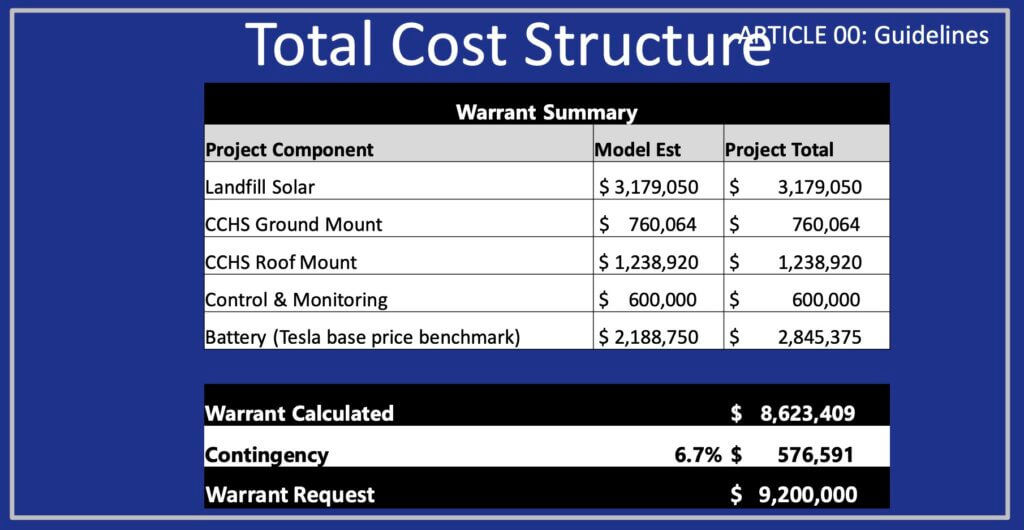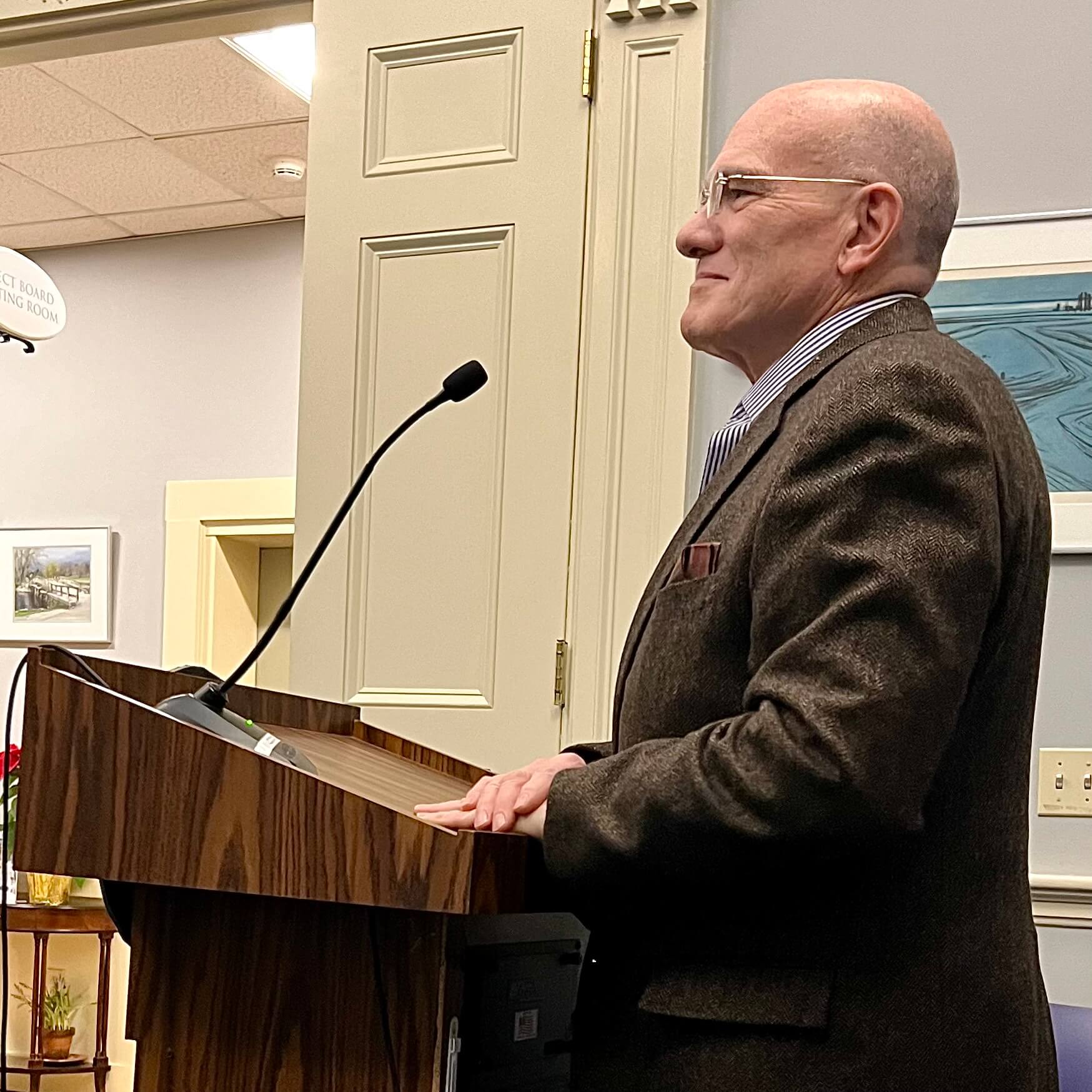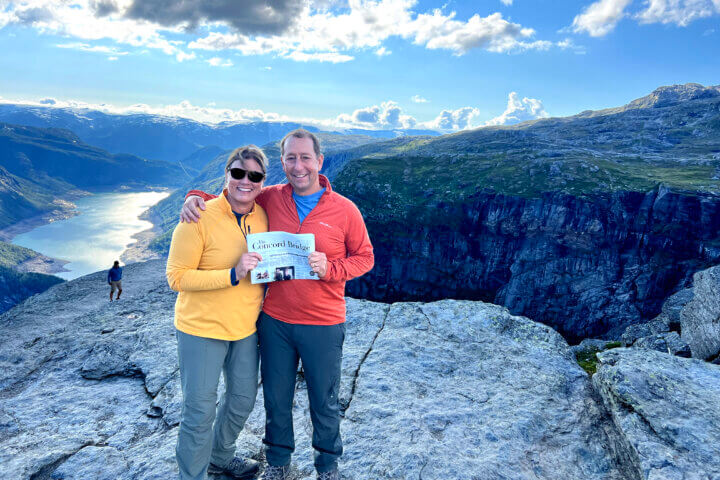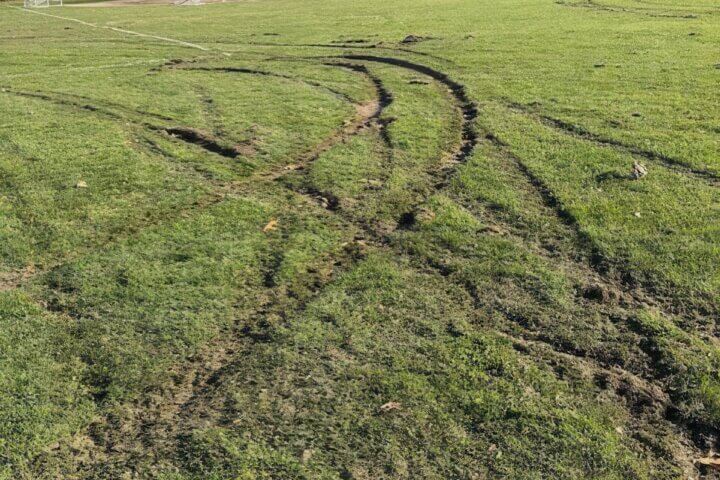The warrant for 2024 Town Meeting closes January 3. The deadline drew a slate of speakers to Monday’s Select Board meeting — and it wasn’t all one big kumbaya moment.
First up: Historic Districts Commission Chair Luis Berrizbeitia, who urged the board not to endorse a Diversity, Equity and Inclusion Committee proposal to review HDC’s mission and work.
“For the past 60 years, [HDC] has been at the forefront of preserving the historic and cultural legacy of Concord and has evolved with societal changes. [HDC] devotes substantial efforts to preserve the historic legacy of minorities and underrepresented communities,” Berrizbeitia said in a prepared statement.
At the same time, he said, HDC “does not control the applications it receives, nor does it have a say in their content or intent.” He stressed HDC “does not have, nor can it have, the primary purpose of implementing social change.”
Berrizbeitia said he had yet to hear how HDC and DEI could work together to meet the needs of underrepresented groups “from the standpoint of the physical historic references of Concord.”
DEI Co-chair Joe Palumbo hastened to say he considered the HDC leader a colleague.
While Palumbo said he felt DEI had “articulated” its rationale, “communication only works if it’s been received,” he said. “So we haven’t done a good enough job yet at communicating the work we want to do — but we’ll continue to work with you, Luis, and your team, in any way possible to get this figured out.”
The work of HDC and DEI has crossed paths in recent days over the fate of the town’s three remaining tercentenary markers.
DEI and the Historical Commission have called the 1930 cast-iron signs — “Jethro’s Tree,” “The Milldam,” and “The First Settlement” — offensive to indigenous people, as well as historically inaccurate. The Select Board voted in a split November decision to cover the signs temporarily, but after a review of the matter by HDC, ordered them removed “for maintenance” instead.
Solar at CCHS?
Board members also heard from Solar Implementation Task Force Chair Dean Banfield, who urged them to support borrowing up to $9.2 million for solar systems at the former landfill site and on the Concord-Carlisle High School campus, both on Walden Street.
The setup would include a ground-mounted system at the landfill and both ground mounts and roof panels at the high school, plus a Tesla battery system.
Overall, “We think that’s about 1.55 megawatts of power that can be generated off that [landfill] site,” Banfield said. “On the CCHS ground mount, that’s about 441 kilowatts of energy, and the CCHS roof is about 450 kilowatts of energy.”
Banfield said the numbers are still being crunched, but the resulting increase in customers’ electric rate costs would likely be “very modest.”

But Tracey Marano, chair of the Concord-Carlisle School Committee, told the board the first time she learned of a potential warrant article for solar at CCHS “was at the town warrant preview meeting on December 2,” and noted “proposals for alteration to the CCHS campus need to be voted on by the regional school committee for acceptance and approval.”
Without more information, “it is not appropriate for the school committee to have this item on an agenda,” Marano said. With more specifics, she said, “I would be happy to put the Light Plant and the Solar Task Force on our agenda.”
Marano added that “there was some discussion at the November 16 Solar Task Force meeting about a potential lease payment to Concord-Carlisle Regional School District which has not been shared with us.”
Banfield said cooperation with the schools was “absolutely critical,” and that the high school idea was included in the overall solar package so if after talks “we have some receptivity at the school, the bond authority would be in place and the town could vote for it. We only get one bite at the apple per year to do this — and so we figured, ‘Let’s go all in.’”
Funding boost for Concord250
With the clock speeding toward a commemoration of the American Revolution’s 250th anniversary, Concord250 Chair Gary Clayton asked that the Select Board “serve as proponent for an article on the Town Meeting warrant for the additional $350,000 that we believe is going to be necessary for public safety and security.”
The town is preparing for ceremonies, a parade and other festivities that could potentially bring hundreds of thousands of visitors to Concord in April 2025 — and formulating plans to keep those visitors safe.
As of the most recent Concord250 preliminary figures Clayton presented Monday, there is $375,000 in funding available for safety operations — about 53% of the total spending plan, and well short of the projected $725,000 needed for security.
But Select Board member Terri Ackerman, among others, pressed Clayton and his colleagues to also work on generating private-sector contributions for the festivities: Without a significant boost in funding, officials said, the massive public safety requirements could force the town to cut back on other programming and dramatically reduce the scope of the event.
“I know there’s going to be some [fundraising], but [it’s] just a little more than a year from now — and I’m getting very concerned that we haven’t seen much specifics on that yet,” Ackerman said. “It would make me a lot more comfortable supporting something in Town Meeting if we also had a similar contribution from the private sector.”
Rather than sign on to the proposed warrant article Monday night, the board agreed to take up 250th funding again in January.
The 2024 Town Meeting is scheduled for April 29. The last day to register to vote at the meeting is April 19.






